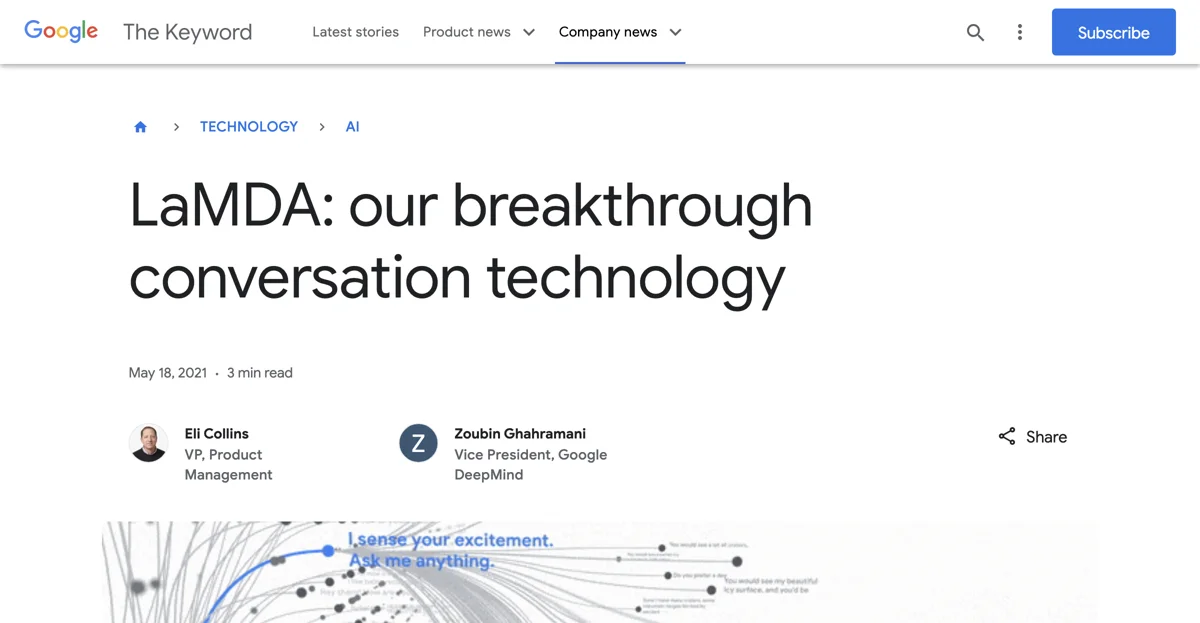LaMDA represents a significant leap forward in the realm of conversational AI, developed by Google. This innovative technology is designed to engage in open-ended dialogue, a complex challenge in the field of computer science due to the nuanced and adaptable nature of human language. Unlike traditional chatbots that follow narrow, predefined paths, LaMDA can navigate the meandering quality of human conversations, making it a powerful tool for more natural interactions with technology.
At its core, LaMDA is built on the Transformer neural network architecture, which Google Research invented and open-sourced in 2017. This architecture allows the model to read and understand the relationship between words in a sentence or paragraph, predicting what words will come next. What sets LaMDA apart is its training on dialogue, enabling it to grasp the nuances of open-ended conversation, such as sensibleness and specificity in responses.
LaMDA's development is a testament to Google's commitment to advancing AI technology responsibly. The company emphasizes the importance of adhering to its AI Principles, ensuring that technologies like LaMDA minimize risks such as the propagation of biases or misinformation. Google's approach includes rigorous scrutiny at every step of development, open-sourcing resources for researchers, and continuous evaluation to incorporate conversational abilities into more products responsibly.
The potential applications of LaMDA are vast, ranging from enhancing customer service interactions to creating new categories of helpful applications that leverage natural language understanding. As Google continues to refine and explore the capabilities of LaMDA, the focus remains on ensuring that the technology is not only advanced but also aligned with ethical standards and societal benefits.

